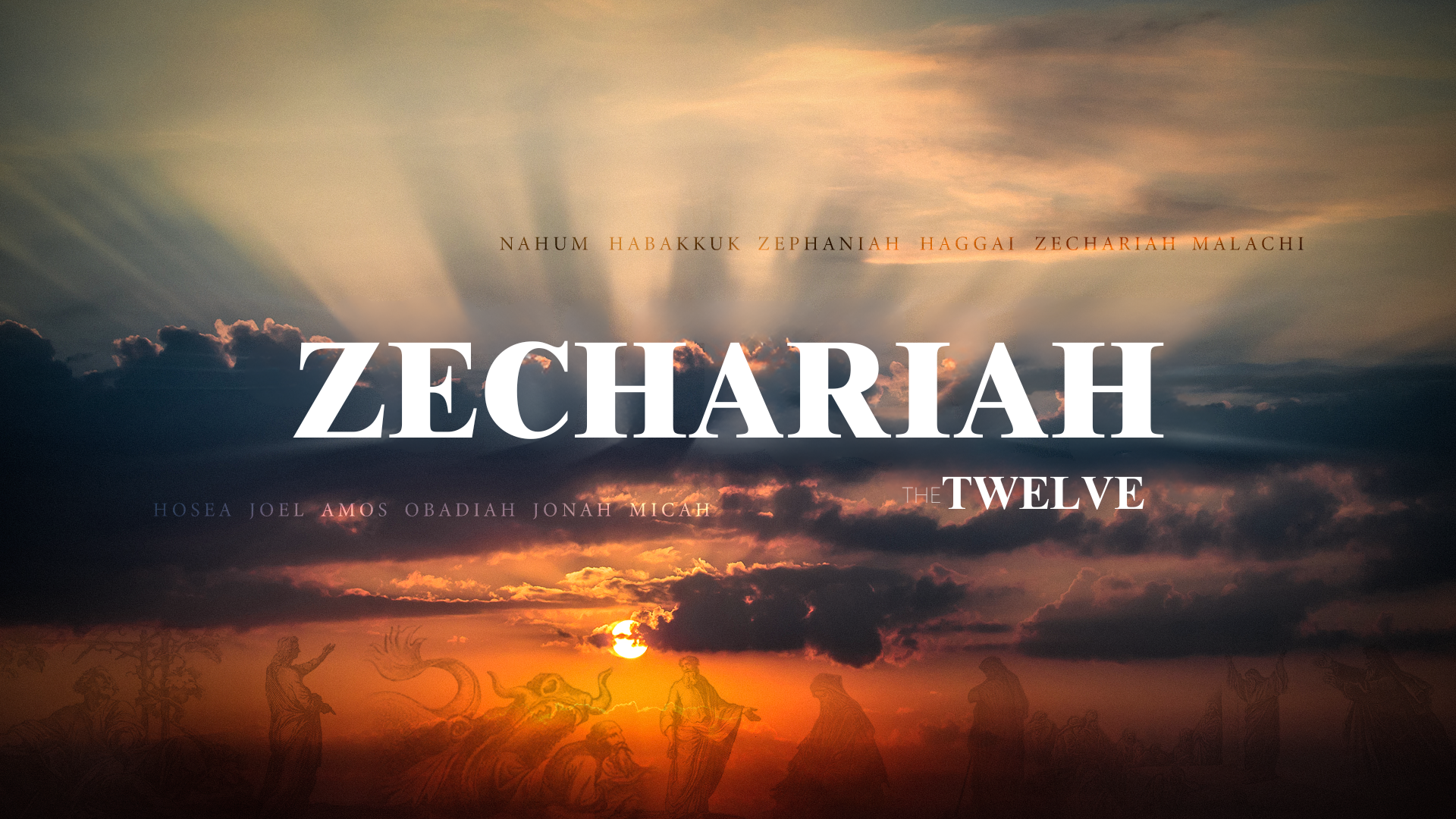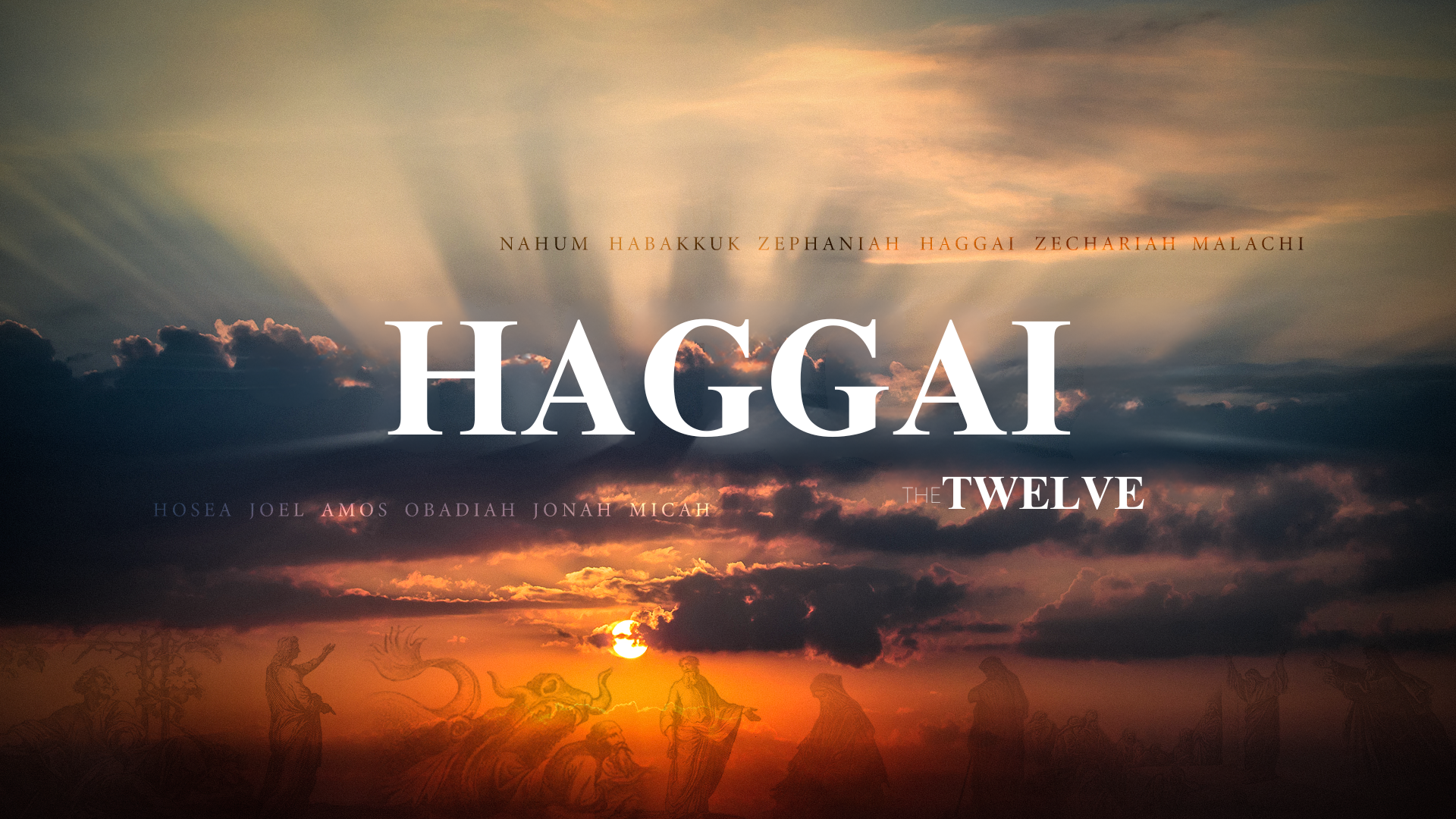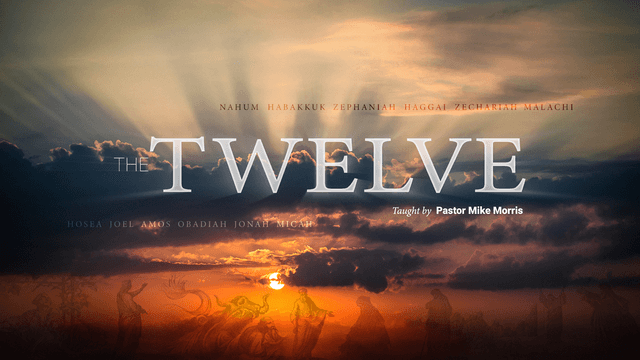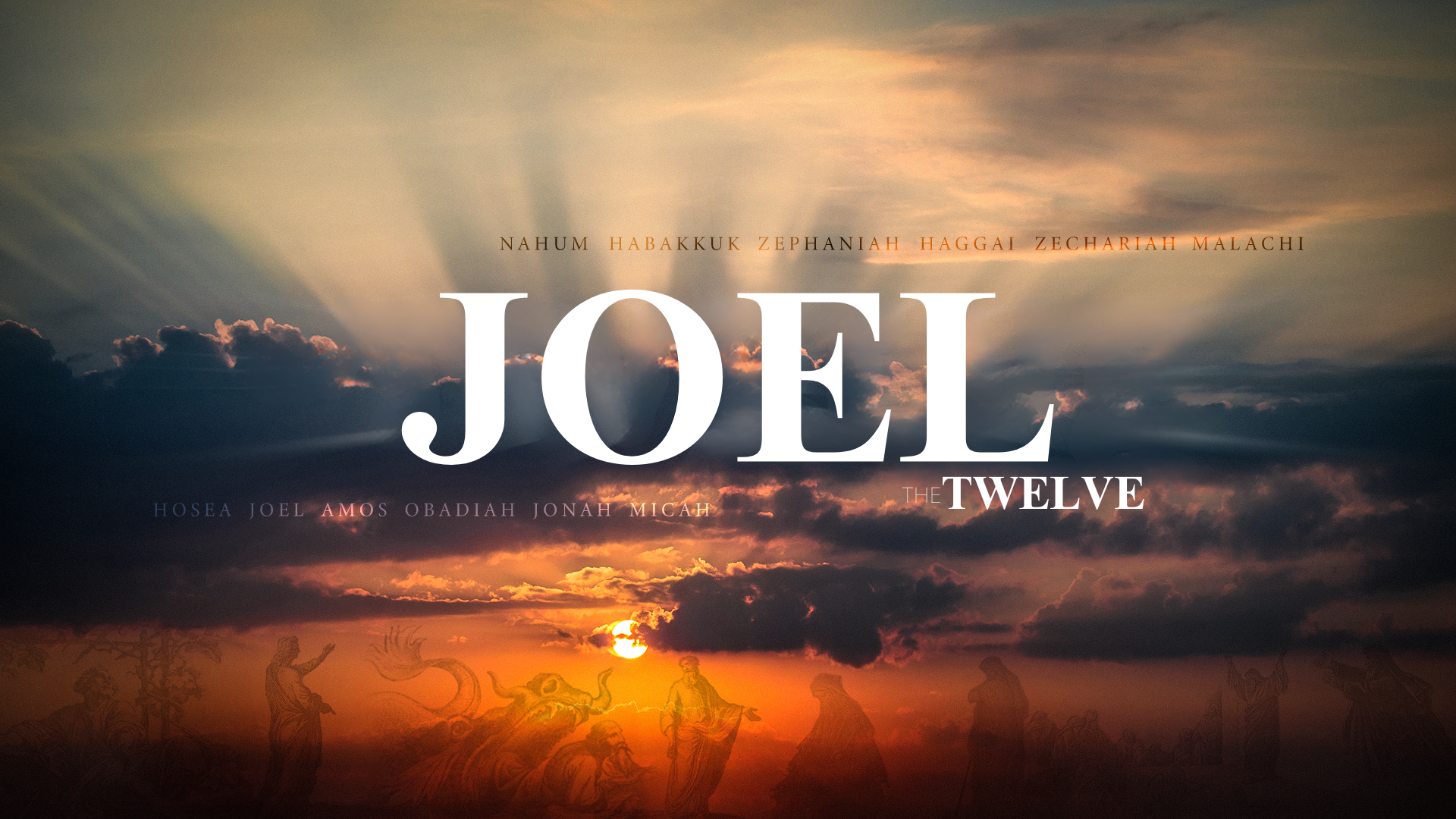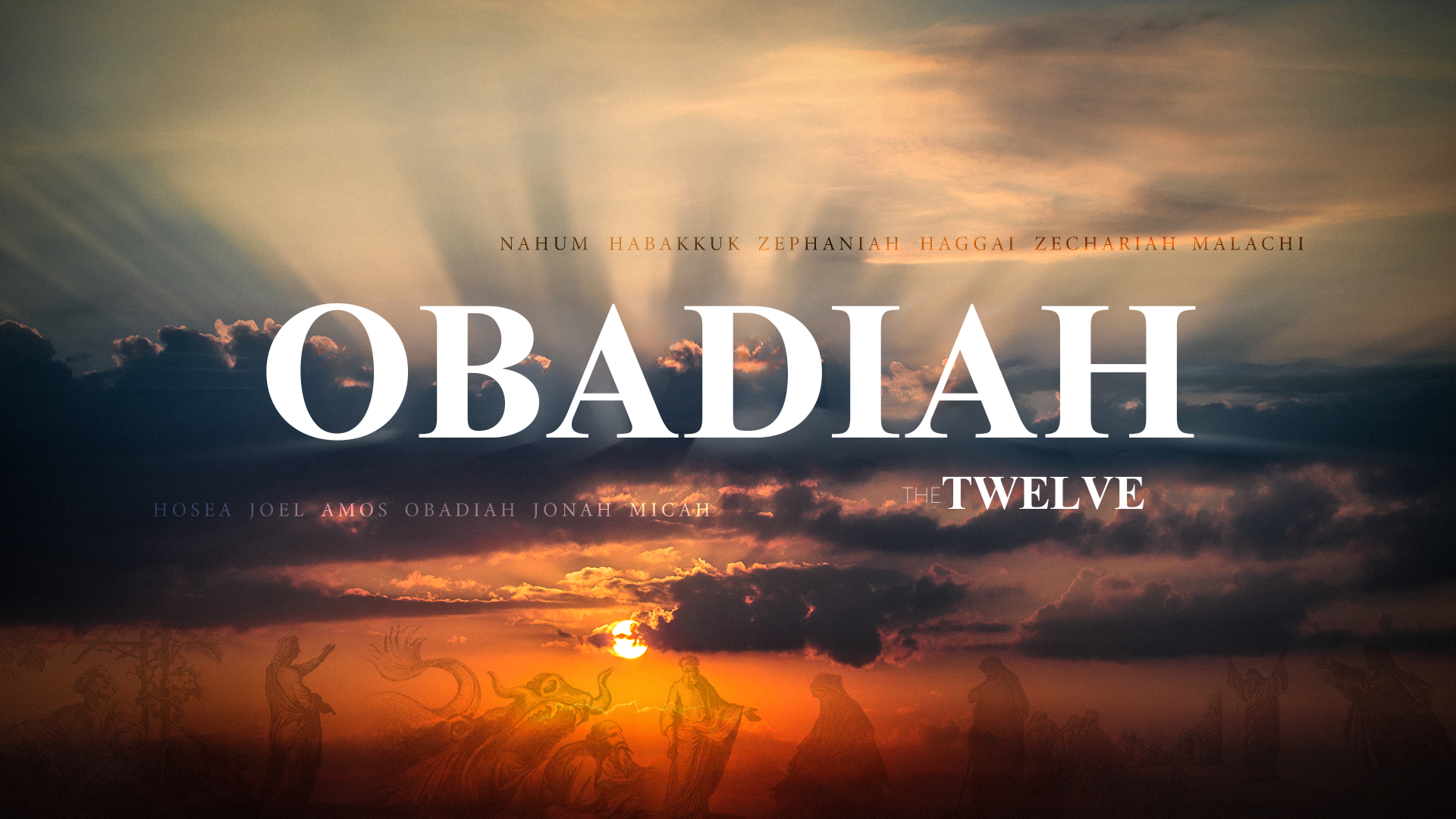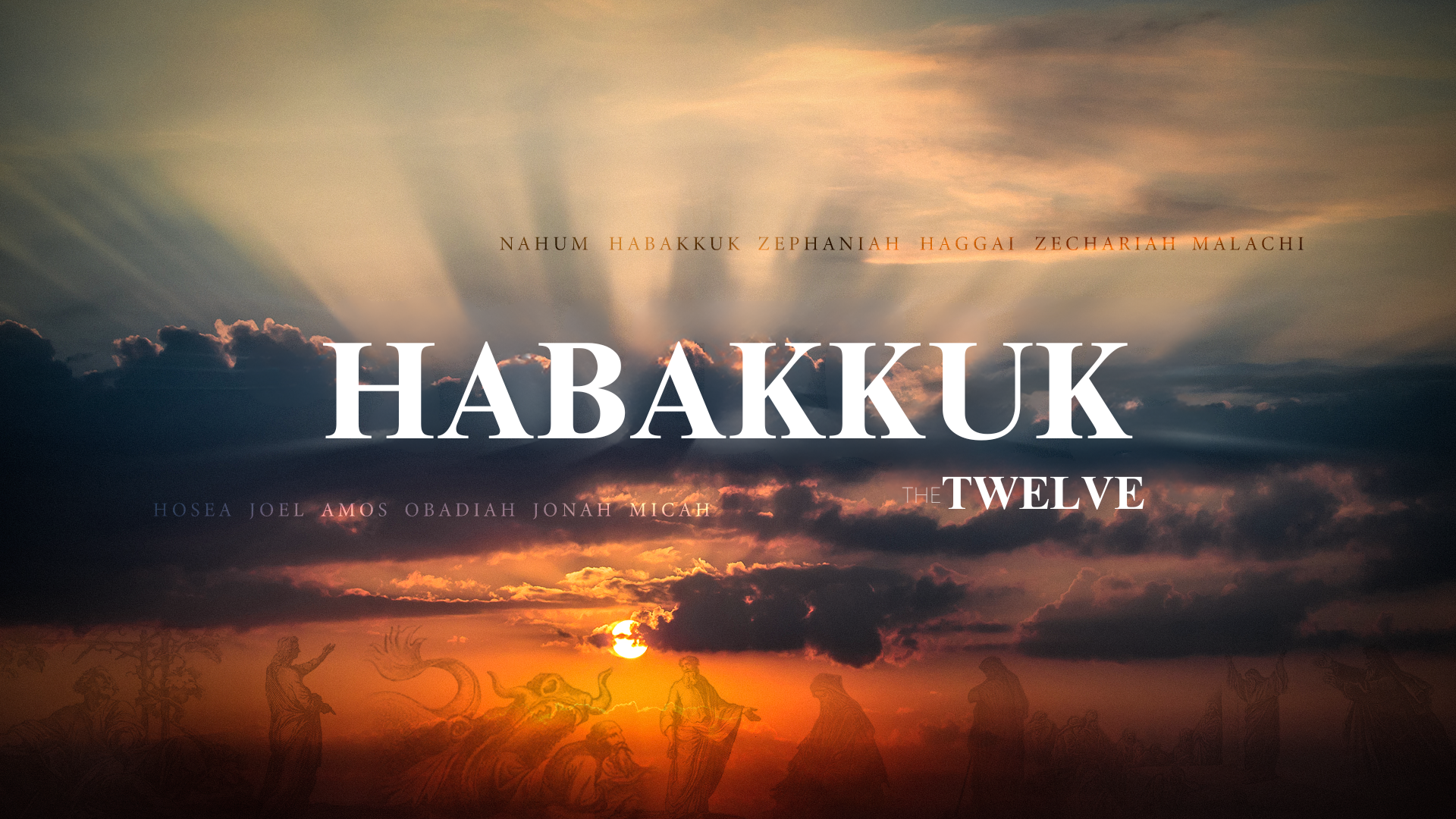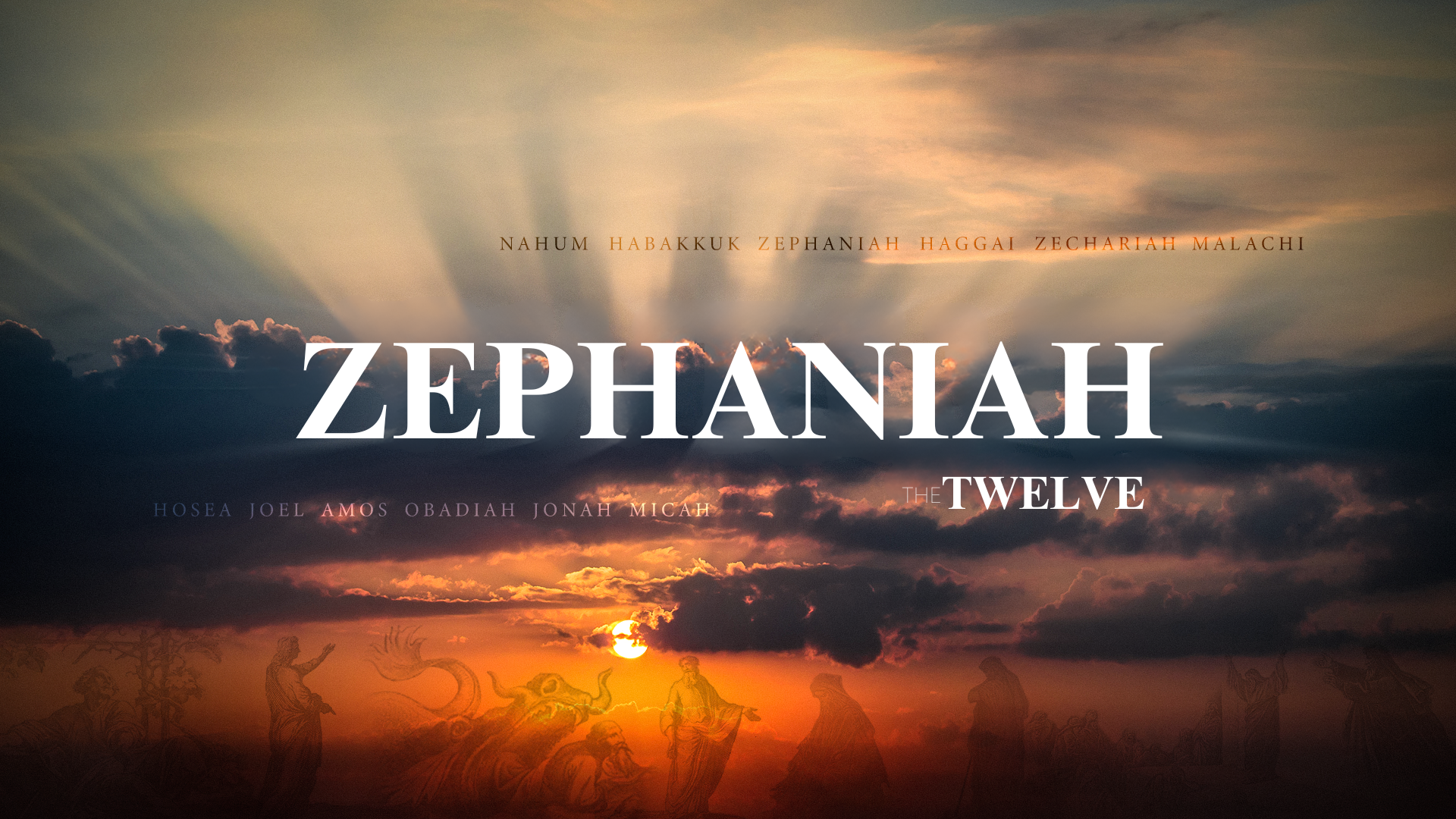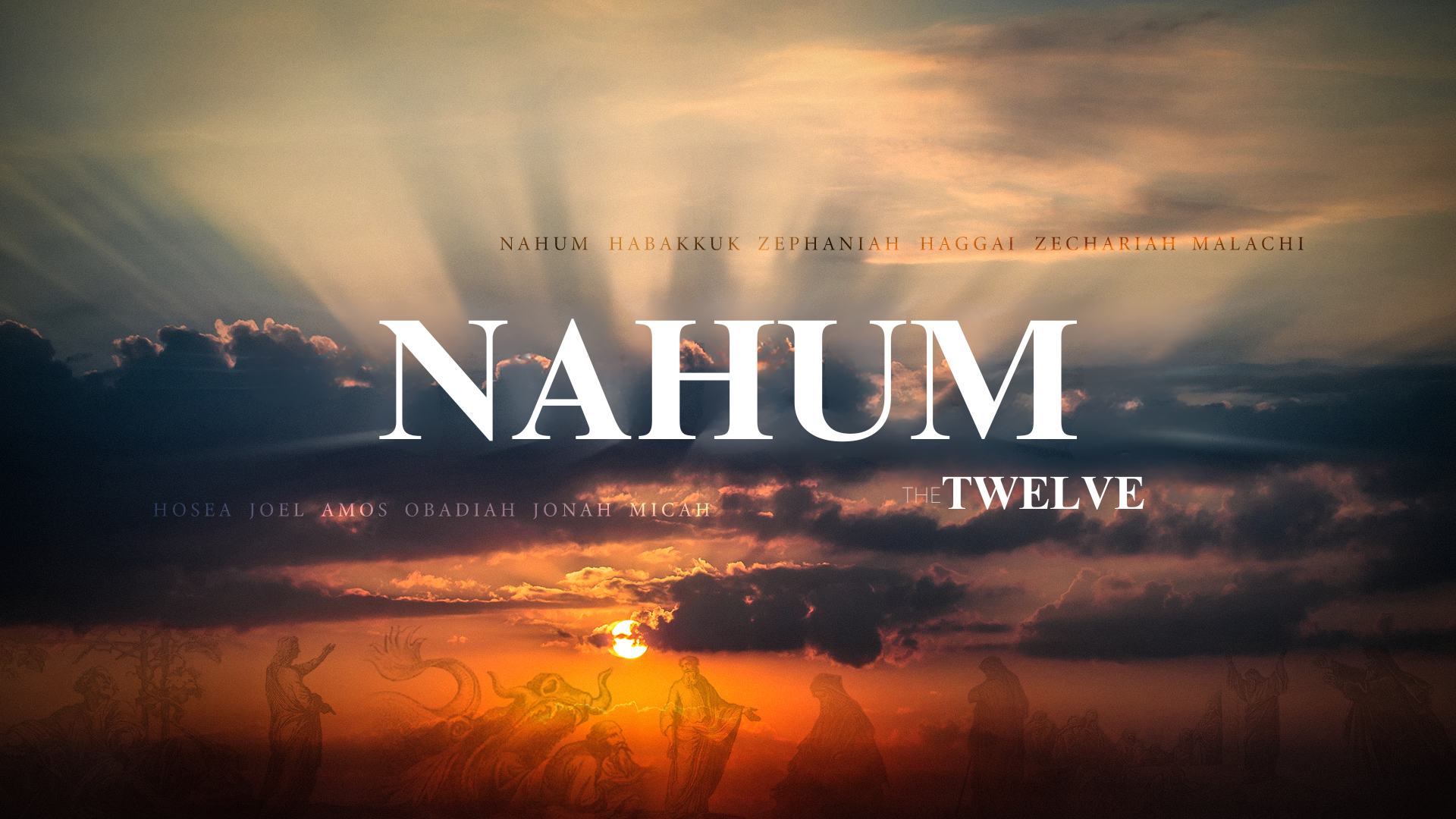MANUSCRIPT
Last week, we discovered the call of God to Israel to sow for themselves righteousness, and they would reap the steadfast love of God...and He assures them of His love as He reminds them of all the blessings He has given them as He watched over and sustained the nation...but ultimately we saw that the people rejected that call to repent and return to the Lord...now, as we near the end of this prophetic book, we look today to chapters 12 and 13 to continue the oracle of Hosea...then next week, we’ll cover the final chapter, chapter 14, and we’ll do a quick review of the book to reinforce the major lessons we learned...
Let’s begin today at chapter 11 verse 12, which leads into the twelfth chapter, verse 1...
12 Ephraim has surrounded me with lies,
and the house of Israel with deceit,
but Judah still walks with God
and is faithful to the Holy One.
This brief comparison sets up the expanded description in chapter 12...Ephraim has fallen headlong into sin, while Judah still walks with the covenant God...for a time...let’s pick it up at verse 1
1 Ephraim feeds on the wind
and pursues the east wind all day long;
Odd turn of phrase...we understand the meaning more from the context, both in the second half of the verse, and also from 13.15...here, “feeding on the wind” is an obvious figure for futility...you can’t eat air...and pursuing the wind is a senseless task, if taken literally...but we learn from Hosea 13.15 that
15 Though he may flourish among his brothers,
the east wind, the wind of the Lord, shall come,
rising from the wilderness,
The scorching east wind, coming through Israel from the deserts of what is today Iraq and Saudi Arabia, is said to be the “wind of the Lord”...in this context, the certain meaning of the phrase is the Assyrian Empire...Israel was “pursuing” that east wind in terms of a political and military alliance...one of Israel’s persistent sins that would eventually contribute to their destruction, as we see in the second half of the verse...
1 they multiply falsehood and violence;
they make a covenant with Assyria,
and oil is carried to Egypt.
Israel always valued earthly allies more than their covenant God...and they continued that sin until the very end of the northern kingdom...
Having set the stage, Hosea now speaks for the Lord as He unveils His controversy or indictment against Judah and Israel, here named Jacob...
2 The Lord has an indictment against Judah
and will punish Jacob according to his ways;
he will repay him according to his deeds.
While the Lord promises judgment -- repayment according to the deeds of Israel, affirming again the principle of sowing and reaping -- first He recounts the highlights of the life of the third Hebrew patriarch, Jacob, later renamed Israel...
3 In the womb he took his brother by the heel, (Genesis 25.26)
and in his manhood he strove with God.
4 He strove with the angel and prevailed; (Genesis 32.22-32, the wrestling match at Peniel)
he wept and sought his favor. (Genesis 32.26)
He met God at Bethel, (Genesis 35.15, God affirmed his changed name)
and there God spoke with us— (speaking on behalf of the nation)
5 the Lord, the God of hosts,
the Lord is his memorial name:
Verses 4b and 5 could not be more pointed as a reminder...Yahweh had spoken with Jacob the man at Bethel in Genesis 35, but now Jacob the nation worships Baal, also at Bethel...and God reminds them of His powerful name, not used often in Scripture, the Lord, the God of Hosts, here calling it His memorial name, the name by which He is to be remembered
Hosea concludes this portion recounting the best of Jacob with a reminder of their duties under the covenant, similar to Amos 5.24 and Micah 6.8
6 “So you, by the help of your God, return,
hold fast to love and justice,
and wait continually for your God.”
Now we turn from the best of Jacob to the worst of Jacob...
7 A merchant, in whose hands are false balances,
he loves to oppress.
The image is deceitfulness...the grasping, lying, deceiving Jacob, evident even from birth as he grasped Esau’s heel...greedy for gain and profit, even at the expense of fellow Israelites...
8 Ephraim has said, “Ah, but I am rich;
I have found wealth for myself;
in all my labors they cannot find in me iniquity or sin.”
And with that wealth comes pride and arrogance...note the personal pronouns...I, myself, me, my...their incredible assertion that they are guiltless, free of iniquity or sin, righteous in all their ways...
But God will humble them as He reveals Himself, and reminds them where they came from, and just as importantly, where they are going...
9 I am the Lord your God
from the land of Egypt;
I will again make you dwell in tents,
as in the days of the appointed feast.
Yahweh God will return His people to the wilderness from which they came by the hands of the Assyrians, and they will forfeit their luxurious homes, exchanging them for tents...
And opposed to the sins of Israel is the word of God, delivered through Amos, Hosea, Isaiah, Jeremiah, and others faithful messengers...the word which the northern kingdom rejected was in fact spoken by God Himself...
10 I spoke to the prophets;
it was I who multiplied visions,
and through the prophets gave parables.
“Parables” here might also be translated “similitudes” or “figures of speech”...literary forms to convey truth, much as Jesus used parables in the NT...now Hosea uses a wordplay in Hebrew to illustrate what happens to a nation who rejects the authority of God’s word and instead clings to false idols...
11 If there is iniquity in Gilead,
they shall surely come to nothing:
in Gilgal they sacrifice bulls;
their altars also are like stone heaps
on the furrows of the field.
Here, the words “Gilead” and “Gilgal” and the word for “altars” -- “gallim” in Hebrew -- all feature the consonants ‘gl’ -- the Hebrew version of alliteration in English...designed to draw attention to them together to make the point that the iniquity in Gilead and the idolatrous worship in Gilgal are as worthless as the numerous altars made from the worthless piles of unwanted stones a farmer removes from the furrows of the fields
Verses 12 and 13 seem disconnected, but one commentator sees here another similitude...
12 Jacob fled to the land of Aram;
there Israel served for a wife,
and for a wife he guarded sheep.
13 By a prophet the Lord brought Israel up from Egypt,
and by a prophet he was guarded.
In both cases, the idea is the obtaining of a bride from a foreign land...the daughters of Laban from the land of Aram as brides for Jacob (in Genesis 29), and the people of Israel rescued from Egypt to be a bride for Yahweh...one key is the doubled use of the word “guarded” -- another is the role of the prophet as God brings out His bride...
Verse 14 summarizes this first passage of accusations against Israel by virtually echoing verse 2...the Almighty God will repay Ephraim for his disgraceful deeds...
14 Ephraim has given bitter provocation;
so his Lord will leave his bloodguilt on him
and will repay him for his disgraceful deeds.
Jacob eventually changed from a deceitful trickster to Israel, father of nations...Hosea is saying that Israel the nation is no longer acting as their father Israel, the honored patriarch, but instead they are acting like Jacob the deceiver...as he said in chapter 10, their hearts are false
Now Hosea moves from accusations to declarations of judgment...
1 When Ephraim spoke, there was trembling;
he was exalted in Israel,
but he incurred guilt through Baal and died.
2 And now they sin more and more,
and make for themselves metal images,
idols skillfully made of their silver,
all of them the work of craftsmen.
It is said of them,
“Those who offer human sacrifice kiss calves!”
3 Therefore they shall be like the morning mist
or like the dew that goes early away,
like the chaff that swirls from the threshing floor
or like smoke from a window.
Note that this passage isn’t spoken to Ephraim, but about Ephraim...Hosea is describing the fall of the dominant tribe within the northern kingdom...when Ephraim spoke, others trembled...yet Baal worship spiritually killed Israel (v 1), leading them further and further into sin, even to the point of human sacrifice to honor a bull, instead of sacrificing a bull to atone for human sin...they had completely lost their way...and as a result, they would eventually simply cease to be, in a visible, national sense...like an evaporating cloud or dispersing smoke or chaff that blows away...D.A. Hubbard said it this way: The point is that idolatry carries its own punishment: you worship nothing; you get nothing; you end as nothing.
And the ferocity of God’s judgment is both appalling and terrifying...
4 But I am the Lord your God
from the land of Egypt;
you know no God but me,
and besides me there is no savior.
5 It was I who knew you in the wilderness,
in the land of drought;
6 but when they had grazed, they became full,
they were filled, and their heart was lifted up;
therefore they forgot me.
7 So I am to them like a lion;
like a leopard I will lurk beside the way.
8 I will fall upon them like a bear robbed of her cubs;
I will tear open their breast,
and there I will devour them like a lion,
as a wild beast would rip them open.
God reveals Himself in verses 4 and 5, reminding Israel of His provision and blessing, and their sin in forgetting Him...then He compares the coming judgment to being attacked and slain by wild beasts in the most vicious way possible...ripped apart by a lion or a leopard, or torn apart by an enraged mother bear...He will tear them and rip them open, devouring them like an unstoppable predator...
The leaders of Israel considered themselves safe and prosperous...they were not...listen to Hosea’s prophecy...
9 He destroys you, O Israel,
for you are against me, against your helper.
10 Where now is your king, to save you in all your cities?
Where are all your rulers—
those of whom you said,
“Give me a king and princes”?
11 I gave you a king in my anger,
and I took him away in my wrath.
Israel trusted in political and military leaders instead of the Lord their God...they had taken the truth of Psalm 56.11 and completely inverted it...
in God I trust; I shall not be afraid.
What can man do to me?
In contrast, Israel said, “In man I trust; what can God do to me?” Pity the nation whose gods are false, whose leaders are faithless, whose hope is futile...all that awaits that nation is judgment
The next passage speaks of the persistent sin of Israel/Ephraim...the imagery here is more difficult than most other passages, even in a challenging book like Hosea...
12 The iniquity of Ephraim is bound up;
his sin is kept in store.
13 The pangs of childbirth come for him,
but he is an unwise son,
for at the right time he does not present himself
at the opening of the womb.
In verse 12 the meaning is one of Ephraim treasuring, storing up, their sin instead of forsaking it and turning to Yahweh for deliverance...and the idea of childbirth is unexpected, but we understand that verse 13 continues the thought of the persistent disobedience of Ephraim as the moment comes for birth, for returning to the covenant God, but Ephraim refuses...he is an “unwise son”...the Hebrew word here suggests a baby who presents in a breech position, in that day endangering the lives of both mother and child...as if the child did not wish to be born...
Verse 14 is another of the abrupt shifts that Hosea is known for...very similar to the shift in thought between 2.13 and 2.14, when God, who named the three children with names indicating judgment, then reverses their names and says He will allure Israel, and speak tenderly to her...that same kind of change occurs here in chapter 13 as well...
14 I shall ransom them from the power of Sheol;
I shall redeem them from Death.
O Death, where are your plagues?
O Sheol, where is your sting?
The idea of God judging His people, even unto near-total destruction, then restoring and even resurrecting them is not uncommon in the Old Testament...here God uses words the comforting words “ransom” and “redeem” to assure Israel of her ultimate and eventual deliverance...and He includes a mocking taunt of Death and Sheol that we find repeated near verbatim by the apostle Paul in I Corinthians 15.55...
O death, where is your victory?
O death, where is your sting?”
But in case you thought Yahweh might let Israel off the hook, the closing statement removes that doubt...
Compassion is hidden from my eyes.
This is the only OT use of this Hebrew word rendered “compassion” -- the meaning is akin to “feeling sorry for” -- God says He has no compassion, not pity, for Israel...He does not feel sorry for them...they have chosen their sin and, through that choice, they have chosen His judgment
The chapter ends with the final statement of the judgment oracles of the book...
15 Though he may flourish among his brothers,
the east wind, the wind of the Lord, shall come,
rising from the wilderness,
and his fountain shall dry up;
his spring shall be parched;
it shall strip his treasury
of every precious thing.
16 Samaria shall bear her guilt,
because she has rebelled against her God;
they shall fall by the sword;
their little ones shall be dashed in pieces,
and their pregnant women ripped open.
The east wind of the Lord -- the Assyrians -- are now already moving toward Israel, and God’s hand will not stop them...the metaphor is both striking and terribly sad...this hot east wind, the feared Assyrian Empire, will destroy the only sources of water in a desert land...it reminds us of Israel’s Exodus experience, when the Lord used an east wind to bless the people, not to judge them...Exodus 14.21-22
21 Then Moses stretched out his hand over the sea, and the Lord drove the sea back by a strong east wind all night and made the sea dry land, and the waters were divided. 22 And the people of Israel went into the midst of the sea on dry ground, the waters being a wall to them on their right hand and on their left.
Along with physical destruction, the Assyrians will plunder everything of value from the kingdom...the treasuries, their storehouses, will be left empty...all will be lost
And as Samaria bears her guilt and the terrifying punishment that will accompany it, the people of Israel -- who should have lived lives of great blessing submitted to Yahweh, their covenant-keeping God -- will be brutally destroyed
And to make the judgment even more painful, nothing is said of the rulers, priests, leaders, or even the military...the only groups specifically mentioned are children and pregnant women, and the text is clear that they will be viciously slain according to the customs of the most heartless empire of their day...
This is all a final description of why and how Israel would be judged...the irony is that at Bethel, where God affirmed Jacob’s new name of Israel and his status as the father of nations (Genesis 35.11) and the blessing of the land (Genesis 35.12) and where Jacob/Israel saw a stairway to heaven, and where he set up a stone pillar of remembrance -- the nation that bore his name, the tribal land of ten of his twelve sons, would be judged for forgetting their God...and through their forgetfulness, they had fallen into rank idolatry, abusing their fellow Israelites, and rejecting the word of God
So what are we to do with this final judgment oracle?
Learn from the mistakes of ancient Israel...and as Hosea speaks of Israel, hear the wisdom of Paul in I Corinthians 10.11...
11 Now these things happened to them as an example, but they were written down for our instruction, on whom the end of the ages has come.
Learn from ancient Israel
Stay humble -- Israel’s greatest sin was pride and arrogance
Stay true -- live from God’s goodness to you, not from your flesh nature
Stay fearful -- our God is an awesome God, and a fierce Judge when He must

Taught by Mike Morris
Associate Pastor of Verse By Verse Fellowship
The Twelve Series
